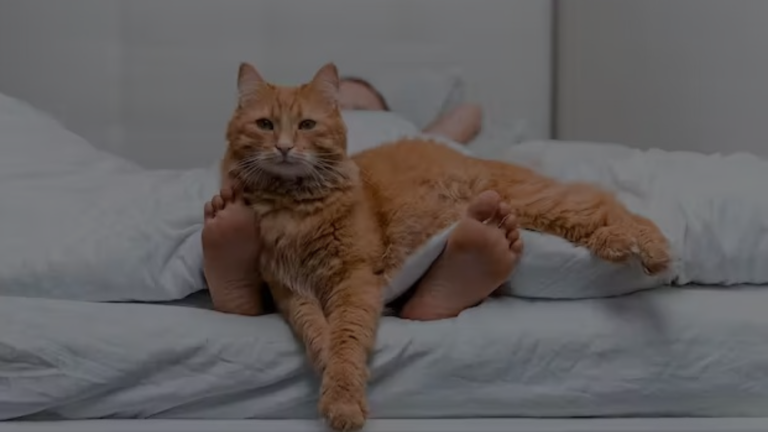Having a litter of kittens is a sweet experience, but when a nursing cat shows signs of another pregnancy, it can raise concerns. Here, we’ll delve into the telltale signs that suggest your feline friend might be expecting again, explore methods for confirmation, and guide you through crucial steps to take for her health and the upcoming litter.
Understanding Repeat Pregnancies in Cats
Cats are prolific breeders, capable of becoming pregnant as early as 4 weeks after giving birth. While nursing kittens naturally suppress ovulation, it’s not foolproof, especially if your cat hasn’t been spayed. This overlap of nursing and pregnancy is not ideal, as it can strain the mother’s resources and impact the health of both litters.
Signs to Watch for a Pregnant Nursing Cat
While early signs can be subtle, several indicators may suggest your nursing cat is pregnant again:
- Changes in Appetite: Increased hunger is common in both nursing and pregnant cats. However, a sudden jump in appetite, especially with weight gain, could signal pregnancy.
- Behavioral Shifts: Observe if your cat becomes more affectionate or withdrawn, restless, or displays increased nesting behavior (seeking quiet spots to prepare for birthing).
- Physical Transformations: Look for subtle changes like swollen, pinker nipples (“pinking up”), a firmer or distended abdomen (more noticeable later in pregnancy), and possible weight gain beyond what’s expected for nursing.
- Reduced Interest in Nursing: As the pregnancy progresses, your cat might spend less time nursing her current litter, prioritizing her own needs.

Remember: These signs can also occur due to other factors like stress or illness. If you suspect pregnancy, consult your veterinarian promptly for accurate diagnosis and guidance.
Confirming Pregnancy in a Nursing Cat
While home pregnancy tests for cats don’t exist, your veterinarian can confirm pregnancy through various methods:
- Physical Examination: Feeling for fetuses in the abdomen is possible later in pregnancy (around 4 weeks).
- Ultrasound: This safe and non-invasive technique provides early confirmation and even reveals the number of kittens.
- X-ray: Primarily used later in pregnancy to visualize skeletal development, but its safety should be carefully considered, especially for nursing mothers.
Taking Steps for Your Pregnant Nursing Cat’s Well-Being
If your veterinarian confirms pregnancy, here’s what you should do:
- Schedule Regular Checkups: Monitor your cat’s health and the kittens’ development through regular vet visits.
- Adjust Diet: Provide high-quality kitten food rich in nutrients crucial for both the mother and developing kittens.
- Prepare a Nesting Area: Create a quiet, comfortable space with soft bedding for her to give birth and care for her kittens.
- Prepare for Weaning: Start planning to gradually wean the current litter around 4-6 weeks old to ensure adequate resources for the new arrivals.
- Consider Spaying: Discuss spaying your cat with your veterinarian after the kittens are weaned to prevent future unplanned pregnancies and safeguard her health.

Supporting Your Cat and Her New Arrivals
Caring for a pregnant nursing cat demands extra attention and resources. By recognizing the signs, seeking timely veterinary confirmation, and providing the necessary care, you can help your feline friend navigate this double motherhood journey smoothly. Remember, spaying after weaning remains vital to prevent further unplanned pregnancies and ensure your cat’s long-term health and well-being.
References & Resources
FAQs About a Pregnant Nursing Cat
How soon can a cat get pregnant after having kittens?
Cats are incredibly fertile and can become pregnant as early as 4 weeks after giving birth. This overlap of nursing and pregnancy isn’t ideal, as it strains the mother’s resources and impacts both litters’ health.
What are the risks of a cat being pregnant while nursing?
Nursing kittens require a significant amount of energy and nutrients. Being pregnant simultaneously depletes the mother’s reserves, leading to complications like:
- Malnutrition for both mother and kittens: Insufficient nutrients can impact the mother’s health and hinder the kittens’ development.
- Reduced milk production: The mother might not produce enough milk for both litters, leading to weaker, undernourished kittens.
- Increased stress and complications: Carrying two litters simultaneously can stress the mother, potentially leading to birthing difficulties or health problems.
How can I tell if my cat is pregnant while nursing?
Early signs can be subtle, but watch for:
- Changes in appetite: Increased hunger, especially with weight gain, could suggest pregnancy.
- Behavioral shifts: More affection, withdrawal, restlessness, or nesting behavior might be clues.
- Physical changes: Swollen pink nipples, a firmer or distended abdomen, and possible weight gain beyond nursing needs.
- Reduced nursing: As pregnancy progresses, the mother might spend less time with her current litter.
- How can I confirm my cat’s pregnancy if she’s nursing?
Home pregnancy tests don’t exist for cats. Consult your veterinarian for confirmation through:
- Physical examination: Feeling for fetuses later in pregnancy (around 4 weeks).
- Ultrasound: Safe and non-invasive, providing early confirmation and kitten count.
- X-ray: Used later in pregnancy to visualize skeletal development, but its safety for nursing mothers needs careful consideration.
What should I do if my cat is pregnant while nursing?
- Schedule regular vet checkups: Monitor your cat’s health and the kittens’ development.
- Adjust her diet: Provide high-quality kitten food rich in nutrients for both mother and kittens.
- Prepare a nesting area: Create a quiet, comfortable space for birthing and caring for the new litter.
- Plan weaning: Gradually wean the current litter around 4-6 weeks old to ensure resources for the new arrivals.
- Consider spaying: Discuss spaying your cat with your veterinarian after weaning to prevent future unplanned pregnancies and safeguard her health.
Can I prevent my cat from getting pregnant while nursing?
The most effective way to prevent pregnancy while nursing is spaying your cat after weaning the current litter. This responsible pet ownership decision ensures your cat’s well-being and prevents further unplanned pregnancies.







![Why Does My Cat Stare at Me? [Spiritual Meaning]](https://petsybox.com/wp-content/uploads/2023/10/Why-Does-My-Cat-Stare-at-Me-Featured-Images01-768x432.webp)